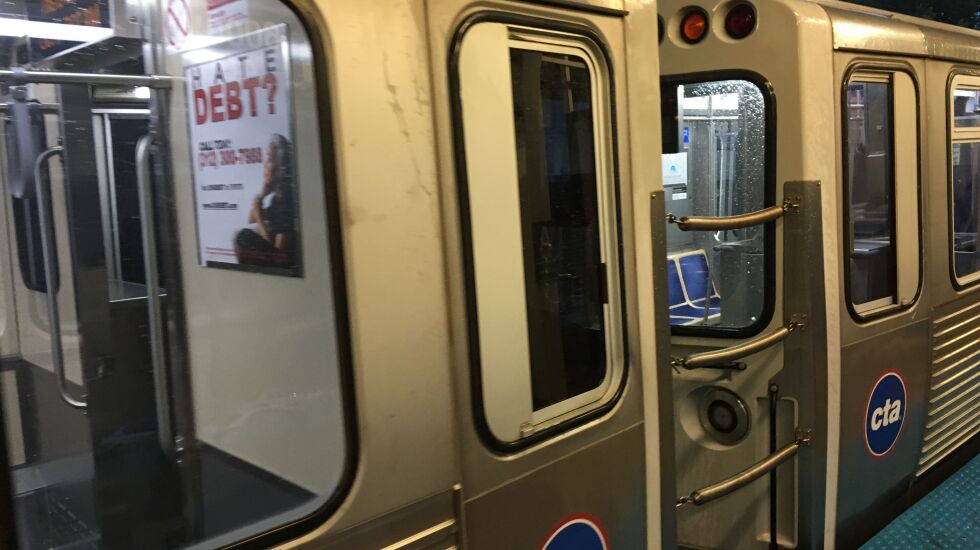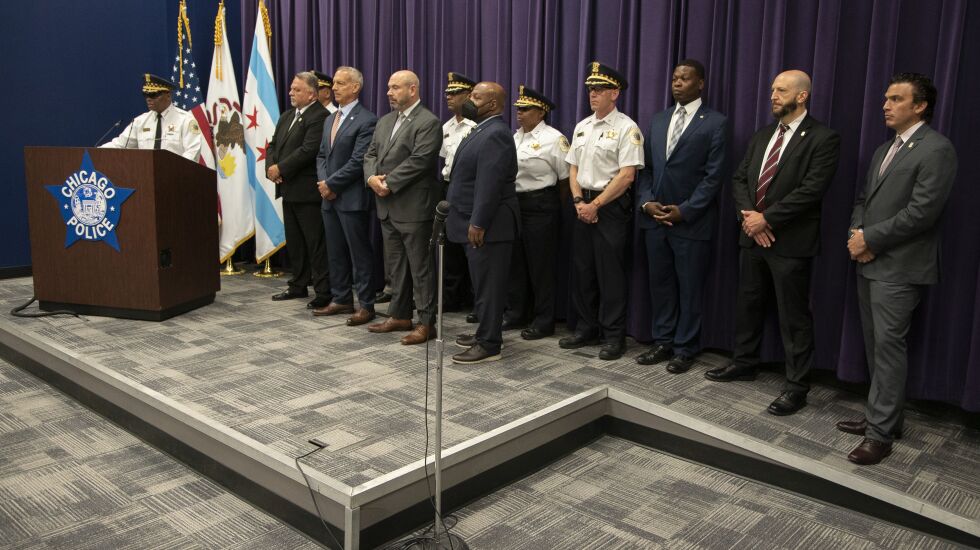
The public debate over CTA safety reignited Monday after a rider on a Red Line train pulled a knife against seven robbers, killing a 15-year-old boy who police say had a gun.
It was the second time in three days that a rider on the Red Line used a knife to fend off a large group, and it comes as CTA officials acknowledge they’ve had problems filling shifts with unarmed guards, an initiative announced back in March.
While the agency said there has been a “big leap” in hiring lately, a CTA union president said it was pointless because the guards have done little to curtail the violence.
“No one respects these unarmed security guards who are doing nothing,” said Eric Dixon, president of the Amalgamated Transit Union Local 308.
As he has advocated in the past, Dixon said the CTA needs to establish its own police unit — disbanded 40 years ago — and put conductors back on trains.
“You want people to feel safe, you want them to ride the transit system and CTA has to do a better job of protecting them,” Dixon said. “That’s not happening right now.”
But CTA security chief Kevin Ryan said the guards do make a difference, supplementing patrols by Chicago police officers.
“We have strategically placed people at stations to be a force-multiplier to the officers who are already there,” Ryan said at a news conference Monday morning.
Catherine Hosinski, a spokeswoman with CTA, added that creating a new police force is untenable considering it would cost hundreds of millions of dollars and take several years to ramp up.
“The CTA already has a dedicated police force — the Chicago Police Department’s (CPD) Public Transit Unit,” Hosinski said in a statement. “Every day, officers from this dedicated unit are dispatched throughout the system, working to prevent crime from happening and responding quickly when it does.”
Ryan estimated that 250 guards are now deployed on the system on any given day, though he would not say how many are assigned to the Red Line, the agency’s busiest.
He said the agency is continuing to hire guards, particularly for the later shifts. “The security industry faces the same challenges everybody else faces — trying to get jobs filled,” Ryan said.
“We have taken a big leap up, and we’re continuing to get larger numbers, especially from the 5 o’clock to overnight hours,” Ryan said. “We’re getting larger and larger numbers.”

Ryan spoke hours after the latest attack on the Red Line, which sees the most crime in the CTA system.
A man was riding a train around 3 a.m. Monday when he was confronted by seven people near 63rd Street, according to Chief of Detectives Brendan Deenihan.
Video appears to show the group trying to rob the rider, with one of them pulling a gun, he said. The rider took out a knife and stabbed the gunman and ran away, as did the robbers.
Police and paramedics found the wounded gunman about a block away, in the 6300 block of South Yale Avenue. The boy, 15-year-old Darin J. Mcnair, was taken to the University of Chicago Medical Center and pronounced dead.
One of the robbers apparently picked up the gun before running off, Deenihan said. No one was in custody.
Early last Friday, six robbers confronted a rider on a Red Line train on the Near North Side. The rider pulled a knife after he had been stabbed and wounded two of the robbers during a fight that spilled through two trains and the North/Clybourn station.
Ryan noted that the increased police presence on the CTA helped authorities arrest everyone involved in Friday’s attack, a point emphasized by Police Supt. David Brown at the same news conference.
The CTA recently met with representatives from the union for bus drivers, Ryan said. “We met with bus operators about their concerns specifically,” he said.
He did not offer more details about what the CTA was doing to address those concerns but said the talks would continue.
But Dixon said talks with agency officials have gone nowhere. “When I bring this to CTA, all they say is, ‘We hear you Eric.’ But they haven’t done anything to make me feel like we aren’t going in the right direction.
“Some members are afraid to come to work,” he said. “It is bad and is getting out of hand.”
The Chicago Transit Justice Coalition, an organization of rank-and-file CTA workers and retirees, said violence “is one of many hazards we face at work.”
The agency should at least go back to two-person crews, especially in “safety-sensitive” areas, the coalition said.
“Our co-workers are desperate to live and work in peace,” the coalition said in a statement. “We are assaulted daily on all lines and bus routes. Our co-workers deserve to serve the public in the best possible working conditions.”







